The Four D’s of Challenge B
The Challenge program in Classical Conversations is a full curriculum for middle and high school home-schoolers. Meeting once a week, the students have an opportunity to discuss, present, and ask questions about the work they completed at home over the last week.
Last year, my son and I completed Challenge A. I say I completed it because I was the tutor in the class, and in order to facilitate the class I needed to be the lead learner. Building off of the skills we gained in Challenge A, we looked forward to tackling Challenge B together.
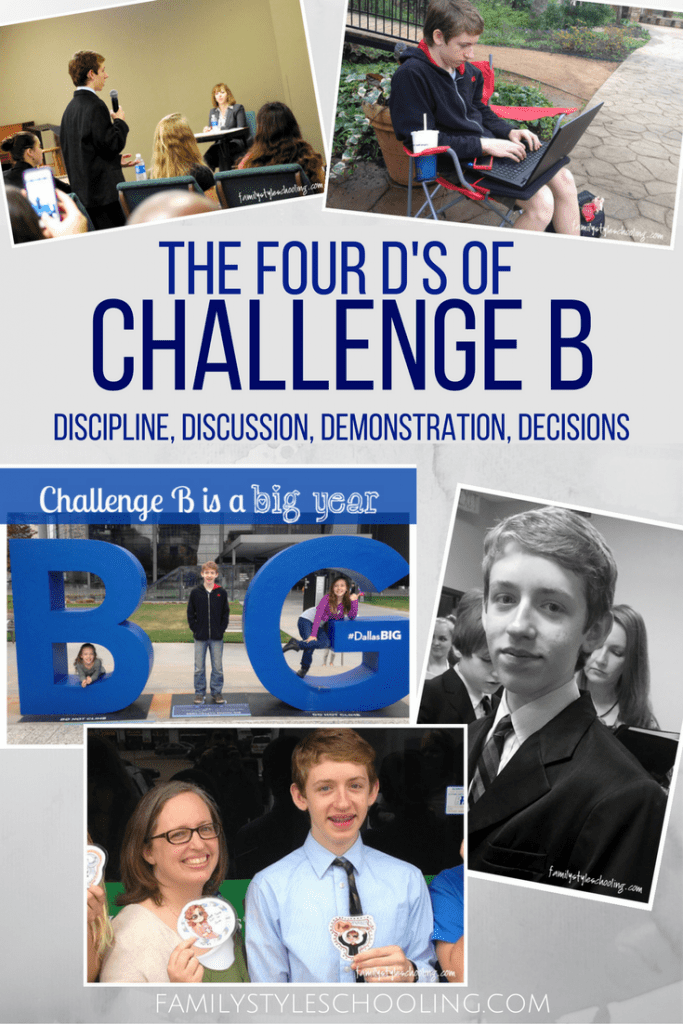
Challenge B is a Big Year
So here is the list of the four D's that defined our Challenge B year:
1. Discipline
The theme for Challenge B is Discipline. If they took ownership of their education in Challenge A, then now they are going to have to discipline themselves in order to accomplish what they desire. Here are some examples of the discipline required in Challenge B.
- Managing work time on semester long projects like Mock Trial and Short Stories
- Memorizing charts for Logic over the Christmas break
- Keeping up with Latin vocabulary and grammar memorization
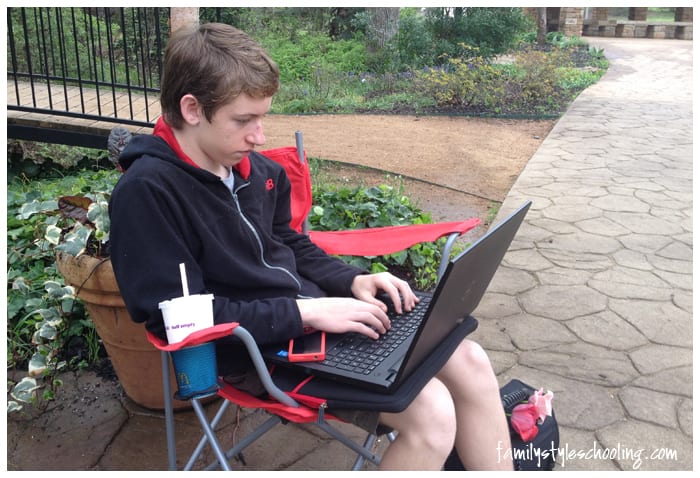
He learned that sometimes you have to get things done when you'd rather be playing.
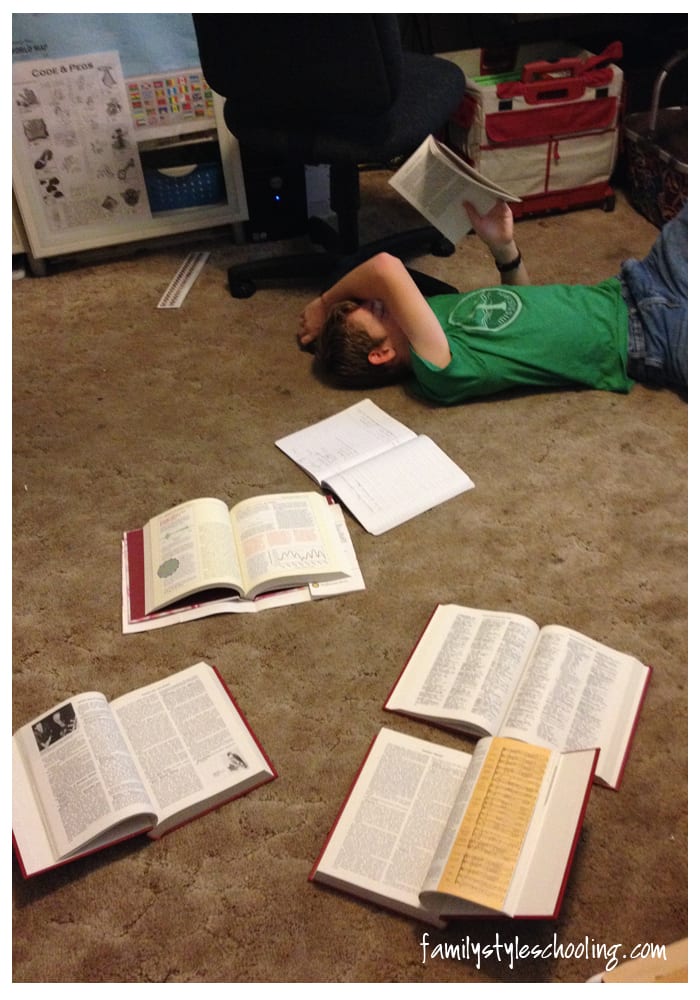
I loved finding him researching history to include in his short story. There is nothing that excites my heart more than seeing him push himself to discover more.
2. Discussion
Let's just say they don't call it Classical Conversations for nothing! Every week the students gather to discuss science, literature, math, Latin, Logic, and current events. The conversations vary from week to week, but since the students are all learning all of the same material, the conversations are not limited by the subject we are highlighting at the time.
In Math, we are not just talking about numbers, but also where we see God's fingerprints in math. Here are some of the discussion highlights from last year:
- We looked at the number Pi and saw God is infinite and precise.
- We looked at adding signed numbers and saw God is orderly.
- We looked at ratios and saw God keeps things in balance.
- We looked at multiplying scientific notations with negative exponents (makes a really small number) and saw God is humble - He became man, humbled Himself and came as a nothing - not a king as was fitting.
- Just like a percent can be written 3 ways (30%, 3/10, 0.3) - God is triune
- We looked at opposites in math and saw that God takes what men intended for evil and turns it to good - like Joseph
- We looked at simple addition and subtraction and saw that God decreased our sin and increased our righteousness by sending His Son to die.
That only covers two weeks out of thirty from one seminar. The discussions are powerful.
3. Demonstrating Understanding
Each week students are given opportunities to begin growing skills of presenting and facilitating conversation. The goal of the tutor is to work themselves out of a job! If we desire to raise leaders, we must give them opportunities to lead. This year the students:
- Led conversations about Latin translations
- Presented each week on a famous astronomer
- Competed in a Mock Trial (more on this in a minute)
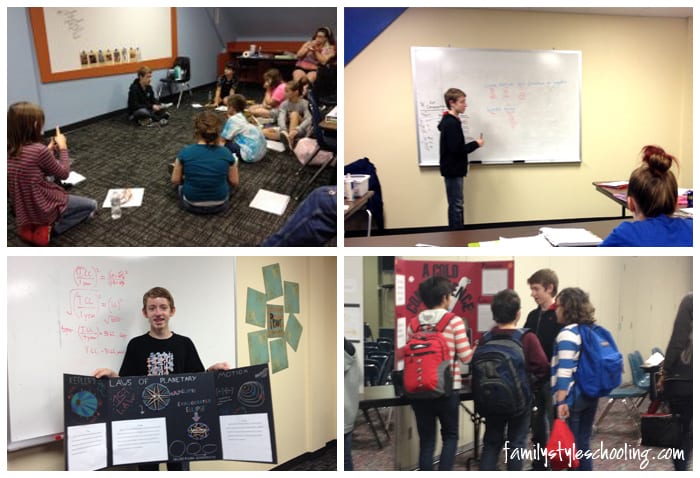
4. Decision Making
Throughout the year, Challenge B students are practicing making decisions. Here are some ways they practice:
- Analyzing characters from their books and deciding whether a character should have done an action (Example: Whether Corrie ten Boom should have thanked God for the fleas in the prison)
- Deciding which rule of inference they will apply to prove a syllogism (I didn't know any of the words in this sentence before I went through Challenge B)
- Narrowing down their concept for their short story
- Preparing for and delivering a well thought out argument live in Mock Trial
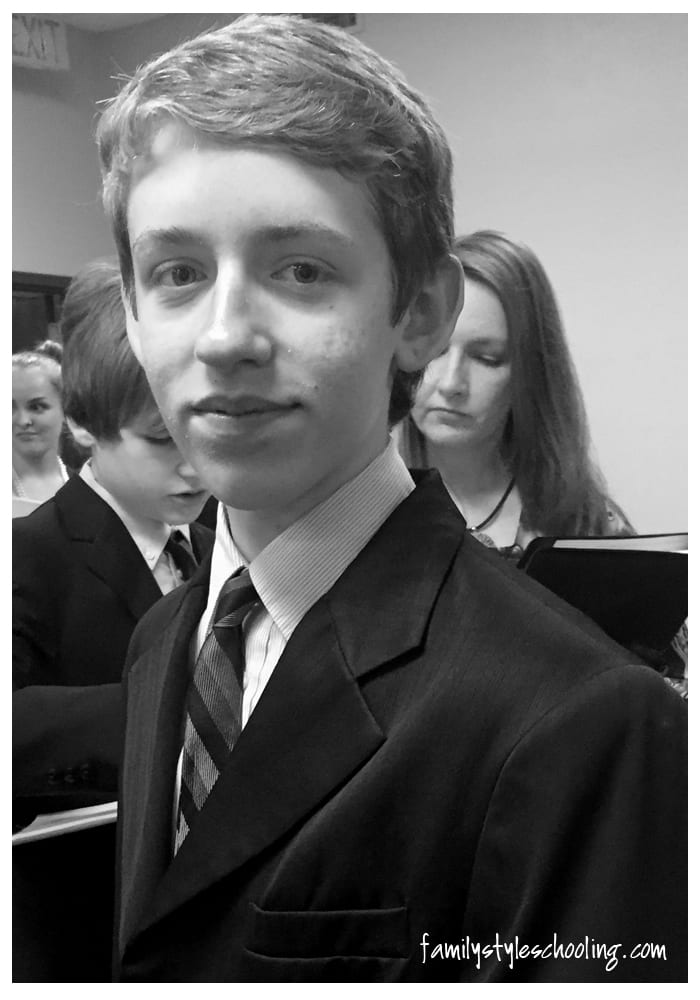 The Mock Trial exercise was immensely intimidating for me because I had never experienced preparing or presenting anything like it. The students scoured a simplified real case, prepared a unique theory, and presented a persuasive argument. We competed against another Challenge B class in the area. It was amazing to see the discipline exercised throughout the semester in order to have a compelling case. Each week their understanding deepened as they discussed the holes in the case. Continually they were required to make decisions, but since they'd been practicing that all year, it wasn't so difficult to decide. Finally, when the day arrived, they demonstrated their understanding of the case in the format of a jury trial. It was a BIG accomplishment!
The Mock Trial exercise was immensely intimidating for me because I had never experienced preparing or presenting anything like it. The students scoured a simplified real case, prepared a unique theory, and presented a persuasive argument. We competed against another Challenge B class in the area. It was amazing to see the discipline exercised throughout the semester in order to have a compelling case. Each week their understanding deepened as they discussed the holes in the case. Continually they were required to make decisions, but since they'd been practicing that all year, it wasn't so difficult to decide. Finally, when the day arrived, they demonstrated their understanding of the case in the format of a jury trial. It was a BIG accomplishment!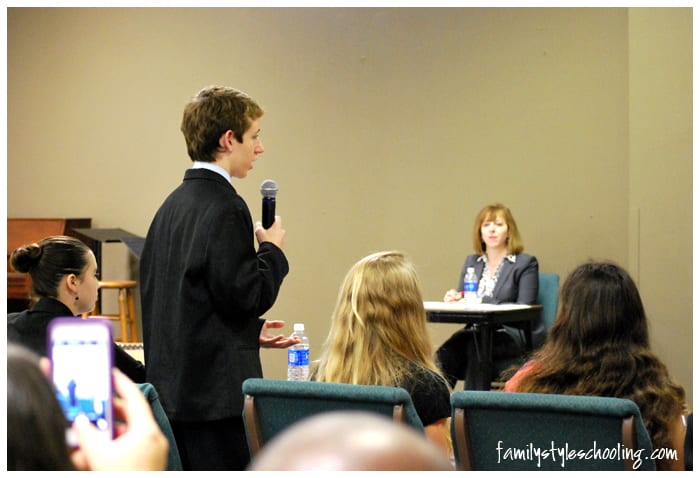
Even though the work load seems challenging, my son still had time for drum line, working various side jobs, guitar lessons, singing in the choir, and enjoying time with his family.
Challenge B is a big year - but the hard work builds muscles that will bless every student in their future endeavors.
Betsy Strauss is an unexpected homeschooler, mother of three, who is in a relationship with a sweet man for life. She loves reading books, drinking coffee, and learning anything with her kids.


Betsy, I noticed you didn’t touch on Logic much. Would you mind sharing how you managed the Intro and Intermediate Logic portion of the year?
Lisa, I was focusing on the overall skills cultivated in Challenge B, not the specifics of the assignments. I was terrified of Intro and Intermediate Logic because I had never studied logic before. You are given two weeks to complete each segment of study, so the pace is really very good for learning the grammar, discussing it, and implementing the concepts. The videos were super helpful. As the teacher, I took a week or two in the summer and worked through the whole thing. The good news is that no one is expected to be master logicians at the end of Challenge B. This is an overview/introduction, and it will be revisited in Challenge II and III. Does this help?
I am very happy to hear that you were able to work through the Logic in a couple of weeks over the summer. I am going to be directing our community’s Challenge B this upcoming year. I have been looking at ways to best prepare myself to lead. Were you able to go through both Intro & Intermediate in that space of time?
Introductory logic is doable in a short period of time (like two weeks), but intermediate is a bit harder. I’m pretty sure I went through that book over the Christmas break. When you start the intermediate logic, it really helps to copy the appendices until you become familiar with them like the kids are asked to do over the break. The best part is that this is the first layer of learning Logic, so you don’t have to master it (nor can you) in one short year.
Thank you for your insight! This will be helpful as my son will be going into Challenge B next year and I’m a bit nervous…
There’s a study guide for Defeating Darwinism. It’s a great companion for the parents to help review with the students. It’s called Tips for Teens on Intelligent Design. Here is the link: https://www.amazon.com/Tips-Teens-Intelligent-Design-Defeating/dp/1468160532
I hope that helps!